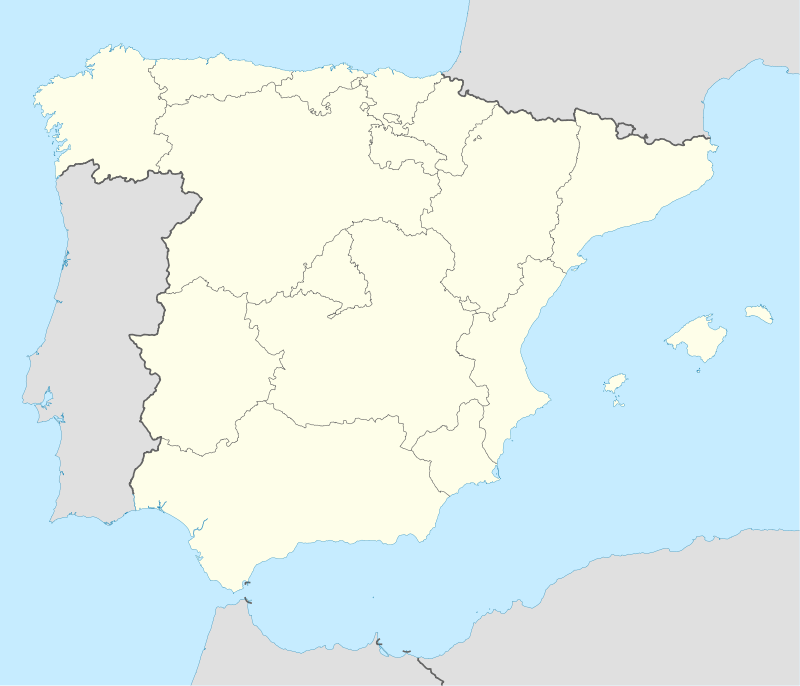Rusadir
 Actual "Melilla la Vieja" is built over Roman Rusadir | |
 Shown within Spain | |
| Location | Spain |
|---|---|
| Region | Melilla |
| Coordinates | Coordinates: 35°17′32″N 2°57′36″W / 35.2922°N 2.9600°W |
Rusadir (even Rusaddir for the Romans and the Catholic church, and Ryssadeiron (Ancient Greek: Ῥυσσάδειρον) for the Greeks) was an ancient Roman-Berber city in Mauretania Tingitana. It was originally a Phoenician and later a Punic establishment under the name of "Rhusadhir". According to the "Itinerarium Antonini", the town subsequently became a Roman colonia. It was located in the present-day Mella.
History
Rusadir is one of the berber nations historical cities in north africa. It is mentioned by Ptolemy (IV, 1) and Pliny (V, 18) who call it "oppidum et portus", also by Mela (I, 33), under the corrupted form Rusicada and by the Itinerarium Antonini.[1]
Romans occupied Rusadir in the first century under Augustus and later opened a coin mint. Emperor Claudius created a Roman colony in 46 AD with the name Flavia.[2]
In the third century Rusadir was fully Christian and enjoyed huge prosperity. Emperor Diocletian made it part of Hispania province in 385 AD.[3]
In the late fourth century, Rusadir served as the Roman port of commerce to the Regnum Maurorum et Romanorum. Vandals sieged and conquered the city around 430 AD, but a few years later it was controlled by the Altava Berber kingdom. The Eastern Roman Empire of Justinianus I conquered temporarily the city, that had less than 3,000 inhabitants after the suffered sieges and destructions. The king of Visigoths Sisebuto conquered Rusadir in 614 AD and reconstructed the destroyed city walls: the city become "Episcopal See". The Byzantine empire after some years recovered the city, but it fell to the Arabs around 701 AD.
Since then Rusadir remained nearly depopulated and reduced to a small village. Only some centuries later, in 1497, it was rebuilt and renamed Melilla by the Castilians.
Notes
- ↑ Sophrone Pétridès, "Rusaddir" in Catholic Encyclopedia (New York 1912)
- ↑ History of Melilla (in. Spanish)
- ↑ Melilla was named "Flavia" during Roman times and united to Spain administratively in the third century
Bibliography
- Conant, Jonathan. Staying Roman : conquest and identity in Africa and the Mediterranean. Cambridge New York: Cambridge University Press. Cambridge, 2012 ISBN 0521196973
- Davies, Ethel (2009). North Africa: The Roman Coast. Chalfont St Peter, Bucks: Bradt Travel Guides. ISBN 978-1-84162-287-3.
- Zurlo, Yves. Ceuta et Melilla : histoire, représentations et devenir de deux enclaves espagnoles L'Harmattan, « Recherches et documents. Espagne ». Paris, 2005 ISBN 2-7475-7656-6
See also
Coordinates: 35°17′32″N 2°57′36″W / 35.2922°N 2.9600°W
%2C_Algeria_04966r.jpg)